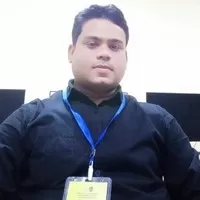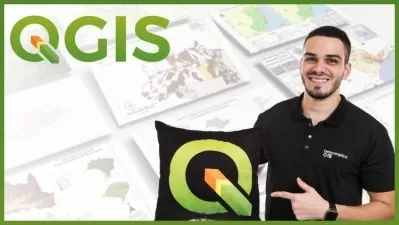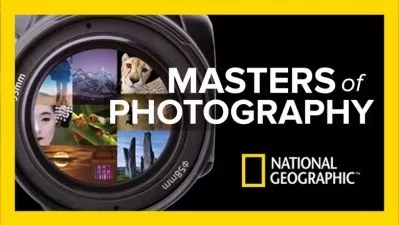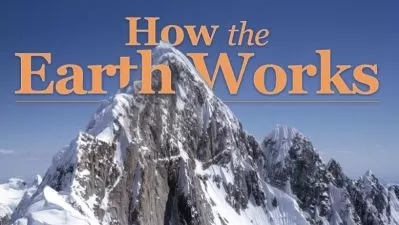Spatio-temporal Trend Modeling of Environmental Data
Seemab Akhtar
34:33
Description
Pixel-to-Pixel Time Trend Modeling, Graphical Representation and Cross-Validation
What You'll Learn?
- Learn the methodology of applying the Mann-Kendall Test at the pixel level to identify monotonic trends in spatial data.
- Grasp the theoretical foundations of the Mann-Kendall (M.K.) non-parametric test, Learn the intricacies of calculating the M.K. test statistics.
- Use color gradients and other visual cues to represent trend magnitude and direction effectively.
- Understand the significance and application of pixel-to-pixel time trend modeling.
Who is this for?
What You Need to Know?
More details
Description A Comprehensive Journey into Mann-Kendall Time Trend Modeling with R and QGIS. Uncover the essence of Mann-Kendall time trend modeling and its applications in diverse fields such as climate studies, hydrology, and environmental analysis. Gain proficiency in detecting and quantifying trends at the pixel level, addressing spatial autocorrelation with finesse.
Embark on a transformative learning experience tailored for research scholars, business analytics professionals, and engineering enthusiasts. Dive into the dynamic world of Mann-Kendall time trend modeling, gaining proficiency in R, RStudio, and QGIS. Equip yourself with essential skills and unleash the potential of data visualization, exploring temporal trends with clarity and precision.
Course Highlights:
Master R and RStudio for Statistical Mann-Kendall Analysis
Harness the Potential of QGIS for Spatial Insights
Visualize Temporal Trends Using Mann-Kendall Time Trend Modeling on Raster Data
Gain Practical Knowledge in Graphical Representation of Tabular Data
Build a Strong Foundation for Data-Driven Decision-Making
Engage in Hands-On Exercises and Real-World Applications
Immerse yourself in dynamic exercises translating theoretical concepts into practical insights. Engage with real-world scenarios, applying Mann-Kendall tests to authentic datasets, cultivating a data-driven decision-making mindset.
Enrol now and redefine your proficiency in decoding temporal trends within tabular and raster data—a skill that transcends boundaries and propels you into the echelons of data virtuosity.
Who this course is for:
- Environmental Scientists: Environmental scientists aiming to deepen their understanding of spatial trend analysis for environmental variables such as temperature, precipitation, and vegetation indices will find practical applications in their field. Geospatial Professionals: Professionals working in geospatial technology and GIS (Geographic Information System) can enhance their skill set with a focus on pixel-to-pixel time trend modeling, adding a valuable dimension to their geospatial analysis toolkit. Renewable Energy Researchers: Individuals conducting research in the field of renewable energy, especially those involved in geothermal energy exploration, will gain insights into spatial trend detection and optimization for heat extraction. Data Science Enthusiasts: Those interested in data science and analytics, seeking to apply statistical methods to spatial datasets, will benefit from the course's emphasis on the Mann-Kendall test and its applications in trend analysis. Graduate Students in Geosciences: Graduate students pursuing degrees in geosciences, including but not limited to geology, hydrogeology, and remote sensing, can supplement their academic knowledge with practical skills in spatial data modeling. Urban Planning Professionals: Urban planners looking to integrate geospatial analysis for understanding trends in urban areas, especially related to district heating and energy planning, will find the course content aligning with their professional objectives. This course is designed to accommodate a broad spectrum of learners, ensuring that individuals from various professional and academic backgrounds can acquire skills that are directly applicable to their specific areas of interest and expertise.
A Comprehensive Journey into Mann-Kendall Time Trend Modeling with R and QGIS. Uncover the essence of Mann-Kendall time trend modeling and its applications in diverse fields such as climate studies, hydrology, and environmental analysis. Gain proficiency in detecting and quantifying trends at the pixel level, addressing spatial autocorrelation with finesse.
Embark on a transformative learning experience tailored for research scholars, business analytics professionals, and engineering enthusiasts. Dive into the dynamic world of Mann-Kendall time trend modeling, gaining proficiency in R, RStudio, and QGIS. Equip yourself with essential skills and unleash the potential of data visualization, exploring temporal trends with clarity and precision.
Course Highlights:
Master R and RStudio for Statistical Mann-Kendall Analysis
Harness the Potential of QGIS for Spatial Insights
Visualize Temporal Trends Using Mann-Kendall Time Trend Modeling on Raster Data
Gain Practical Knowledge in Graphical Representation of Tabular Data
Build a Strong Foundation for Data-Driven Decision-Making
Engage in Hands-On Exercises and Real-World Applications
Immerse yourself in dynamic exercises translating theoretical concepts into practical insights. Engage with real-world scenarios, applying Mann-Kendall tests to authentic datasets, cultivating a data-driven decision-making mindset.
Enrol now and redefine your proficiency in decoding temporal trends within tabular and raster data—a skill that transcends boundaries and propels you into the echelons of data virtuosity.
Who this course is for:
- Environmental Scientists: Environmental scientists aiming to deepen their understanding of spatial trend analysis for environmental variables such as temperature, precipitation, and vegetation indices will find practical applications in their field. Geospatial Professionals: Professionals working in geospatial technology and GIS (Geographic Information System) can enhance their skill set with a focus on pixel-to-pixel time trend modeling, adding a valuable dimension to their geospatial analysis toolkit. Renewable Energy Researchers: Individuals conducting research in the field of renewable energy, especially those involved in geothermal energy exploration, will gain insights into spatial trend detection and optimization for heat extraction. Data Science Enthusiasts: Those interested in data science and analytics, seeking to apply statistical methods to spatial datasets, will benefit from the course's emphasis on the Mann-Kendall test and its applications in trend analysis. Graduate Students in Geosciences: Graduate students pursuing degrees in geosciences, including but not limited to geology, hydrogeology, and remote sensing, can supplement their academic knowledge with practical skills in spatial data modeling. Urban Planning Professionals: Urban planners looking to integrate geospatial analysis for understanding trends in urban areas, especially related to district heating and energy planning, will find the course content aligning with their professional objectives. This course is designed to accommodate a broad spectrum of learners, ensuring that individuals from various professional and academic backgrounds can acquire skills that are directly applicable to their specific areas of interest and expertise.
User Reviews
Rating
Seemab Akhtar
Instructor's Courses
Udemy
View courses Udemy- language english
- Training sessions 4
- duration 34:33
- Release Date 2024/04/14











